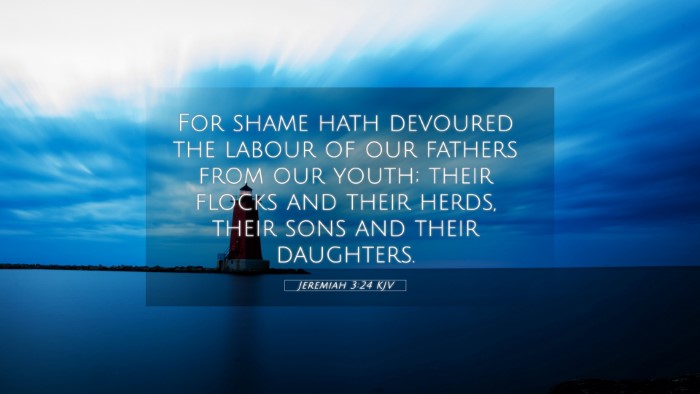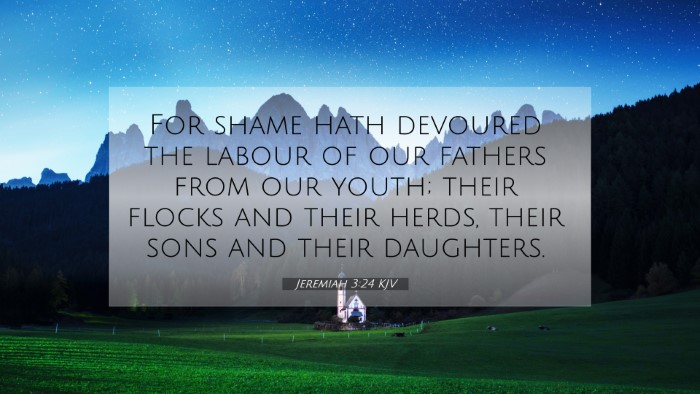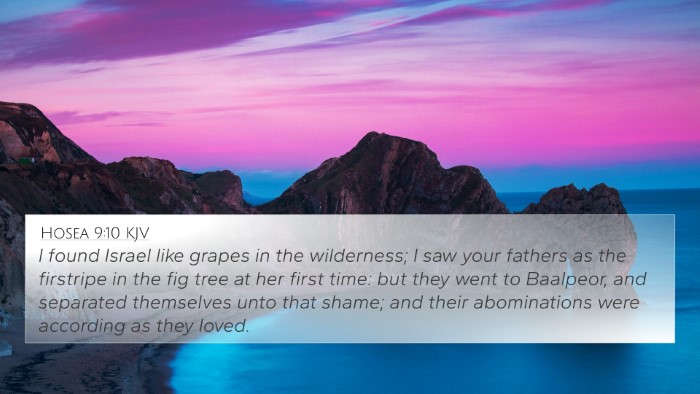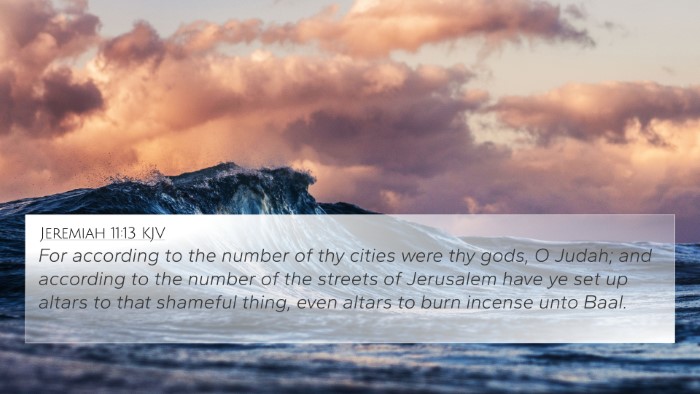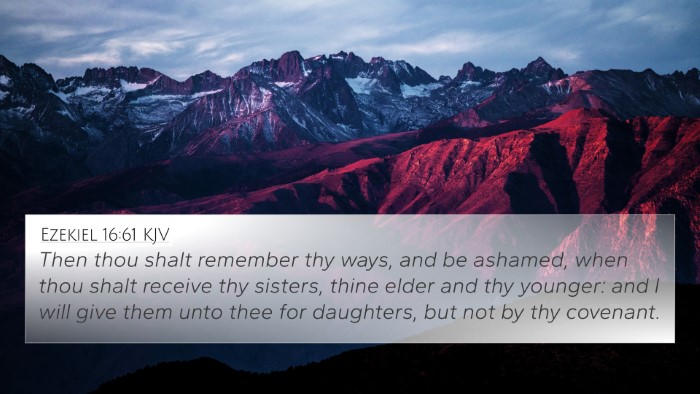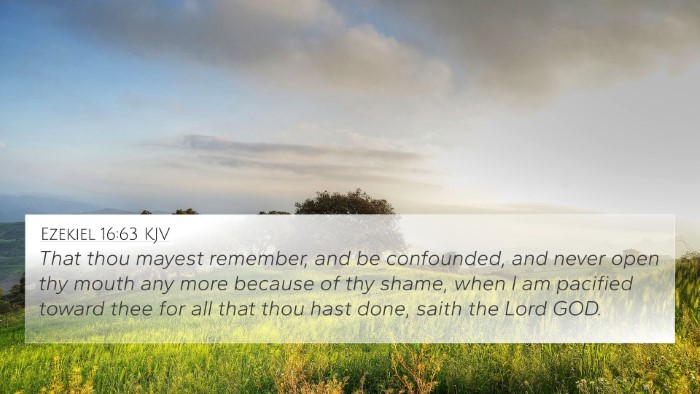Jeremiah 3:24 states, "For shame hath devoured the labour of our fathers from our youth; their flocks and their herds, their sons and their daughters." This verse communicates a profound lamentation of the consequences of Israel's sin and unfaithfulness towards God. Through an exploration of this text, we can draw insights from prominent public domain commentaries such as Matthew Henry, Albert Barnes, and Adam Clarke to understand the deeper meaning of this scripture.
Understanding Jeremiah 3:24
This verse poignantly reflects the themes of shame and the desolation brought upon the people of Israel due to their abandonment of divine guidance and covenant loyalty. The metaphor of the family and possessions being devoured symbolizes the totality of loss experienced by the nation.
Insights from Commentaries
-
Matthew Henry:
Henry emphasizes the heavy burden of guilt carried by the people of Israel, in which their heritage and efforts have been consumed by shame. The reference to their "flocks and herds" symbolizes their material losses, while "sons and daughters" represents the generational impact of their sins. This indicates that the consequences extend beyond individual transgressions to the collective fate of the nation.
-
Albert Barnes:
Barnes elaborates on the notion that Israel's past prosperity was overshadowed by the shame that now defines their condition. He reflects on how their initial obedience was replaced by idolatry, leading to ruin. This commentary connects the verse with the preceding chapters, where Israel's infidelity is vividly depicted, thus linking their history to their current state.
-
Adam Clarke:
Clarke notes that this verse serves as a lamentation that captures the essence of Israel's plight. He draws attention to the idea that their losses were not just physical, but spiritual as well, as the shame they experience is indicative of a deeper estrangement from God. Clarke elucidates that understanding this shame is crucial to grasp the reason for Israel's call for repentance.
Thematic Connections
The themes identified in Jeremiah 3:24 resonate with multiple other biblical texts. Employing scriptural cross-references aids in developing a richer understanding of the message conveyed in this verse. Here are some related verses:
-
Psalm 44:15-16:
These verses also reflect on the shame and reproach faced by God’s people, highlighting the shame resulting from external calamities and defeats.
-
Isaiah 1:18:
This verse underscores the call to reason together with God, indicating that understanding one's sinfulness is the first step toward restoration.
-
Hosea 10:12:
Here, the call for sowing righteousness and reaping mercy connects with the themes of returning to God to escape a legacy of shame.
-
Ezekiel 16:61-63:
Ezekiel speaks about Israel’s restoration and the remembrance of past shame as integral to understanding God’s grace and mercy.
-
Romans 6:21:
In the New Testament, Paul reflects on how the shame of sin leads to eternal separation from God, but also points to the redemptive path available through Christ.
-
2 Corinthians 5:17:
This verse illustrates the transformative power of salvation, contrasting the shameful past with the new identity found in Christ.
-
Philippians 3:18-19:
Paul warns against those whose shameful conduct stands in contrast to the heavenly calling, echoing the themes of Jeremiah regarding the consequences of forsaking God.
Cross-Referencing Biblical Texts
Utilizing tools for Bible cross-referencing allows believers to explore the interconnectedness of Scripture in depth. By interweaving verses like Jeremiah 3:24 with the aforementioned texts, a comprehensive picture of shame, consequence, and the hope for redemption emerges.
Methods for Cross-Referencing
Engaging in cross-referencing Bible study methods can enhance one's understanding of the biblical narrative and its themes. Here are some recommendations:
-
Using a Bible concordance: Helps to locate specific themes and words across various passages.
-
Thematic Bible verse connections: Identifying themes allows for deeper exploration of how different Scriptures respond to similar issues.
-
Comparative Bible verse analysis: Delving into different accounts or teachings within the Bible provides a broader understanding of common principles.
User Intent and Cross-Referencing Resources
For those seeking to understand the connections between Jeremiah 3:24 and other Scriptures, it is vital to ask questions that can guide the study:
- What verses are related to shame and restoration?
- How do the teachings of the Prophets compare with the New Testament perspectives on sin?
- What foundational themes emerge when we examine corresponding verse pairs?
In summary, Jeremiah 3:24 is not just a reflection of loss and shame; it serves as an entry point for rich theological exploration when linked with other biblical texts. By engaging with cross-references, believers can uncover the interconnectedness of God's message throughout Scripture, guiding them towards a fuller understanding of their faith and the grace offered through repentance and restoration.

